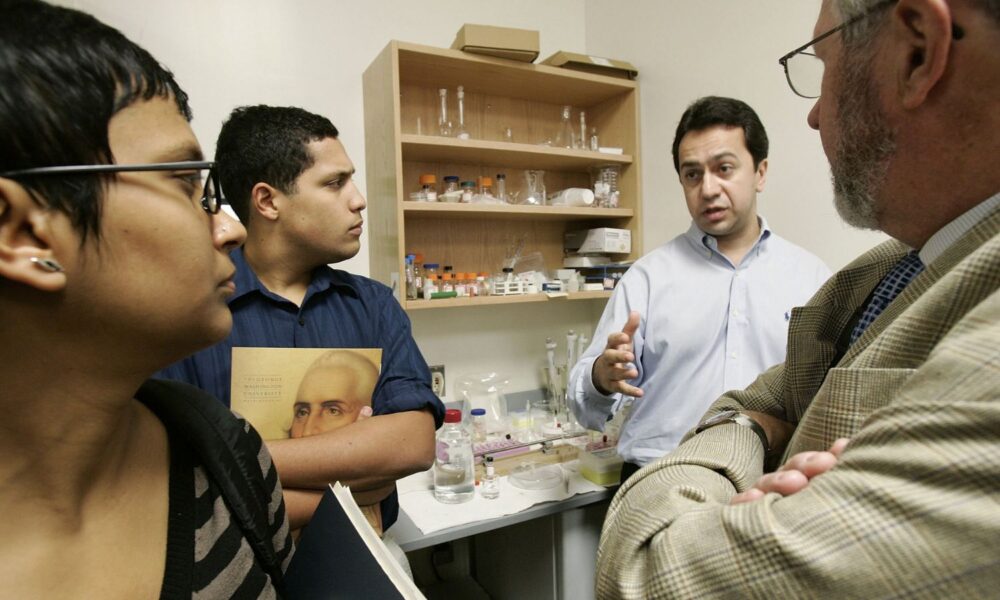Climate litigation is rapidly expanding. As cases multiply, they increasingly depend on rigorous, interdisciplinary research to provide the evidence needed to hold governments, corporations, and other actors accountable for their role in the climate crisis, and to inform meaningful climate action. At the heart of this effort lies an important opportunity for scientists—one that requires greater involvement from experts across fields such as climate science, health, economics, and social sciences.
In our newly released report, Research Areas for Climate Litigation, we outline key research areas where scientists can contribute to the evolving field of climate litigation. Based on interviews with legal practitioners and scholars, this report highlights the increasing need for litigation-relevant research and the importance of expert engagement in legal processes.
Through our research we identified eight key research areas that offer unique opportunities for scientists to inform climate litigation. Three of these are highlighted as priority research areas: attribution science, climate change and human health, and economic modeling. We also identified five strategic areas for further research at the forefront of climate litigation.
Priority research areas: where scientists can lead
Attribution Science: Attribution science can help to connect climate impacts to greenhouse gas emissions and identify responsible actors. This field has advanced significantly in recent years, providing the foundation for numerous legal cases that seek to hold corporations and governments accountable for climate damages. However, more research is needed to address a diversity of climate impacts, quantify the contributions of different emissions sources, and link climate impacts—like extreme weather events—to specific harms communities face. Attribution science needs to expand to include regions that lack historical climate data, particularly in the Global South. By doing so, scientists can help ensure that communities have access to the evidence they need to seek justice.
Climate Change and Human Health: Climate change already profoundly affects human health, from increased respiratory issues due to poor air quality from wildfires to exacerbating chronic diseases during heat waves. Despite the clear connections between climate change and health, more research is needed to quantify these impacts, especially for vulnerable populations such as children, the elderly, and those with preexisting conditions. Legal cases focused on human health often rely on this type of data to demonstrate harm.
By contributing to this growing body of research, experts can inform litigation that seeks to protect public health from the worsening effects of climate change. Health professionals, epidemiologists, and climate scientists can collaborate to develop comprehensive studies that quantify how climate change directly impacts health outcomes—critical evidence for future lawsuits.
Economic Modeling: Economic analyses are essential for calculating the financial costs of climate change. Whether focused on direct damages, adaptation expenses, or lost economic opportunities, this research provides courts with the data they need to determine appropriate remedies. Courts increasingly require solid economic evidence to assess the impact of climate-related events and to quantify the costs of delaying climate action.
Additionally, economic modeling that captures the costs of inaction or the benefits of mitigation strategies can inform both legal cases and policy debates. Economists working in this space can offer invaluable expertise to help courts understand the broader financial implications of climate inaction.
Strategic research areas: expanding the field
In addition to the priority areas, our report identifies five strategic research areas that offer critical opportunities for scientists to contribute to climate litigation:
- Legal and Financial Accountability: Improving emissions accounting and developing mitigation pathways for corporations.
- Disinformation and Greenwashing: Counteracting corporate greenwashing and disinformation campaigns that hinder climate action.
- Fair Share Analysis: Developing compliance metrics for Nationally Determined Contributions (NDCs) and corporate climate goals.
- Environmental and Social Impacts: Expanding research on climate change’s long-term environmental and social impacts, including human rights implications.
- Emissions Accounting and Reductions: Enhancing the granularity of emissions tracking and carbon budget analysis.
Calling all experts: your research is needed
Our report underscores the urgency of bridging the gap between science and the law. If you are a researcher working in any of these areas—or if you are interested in learning more about how your work could support climate litigation—now is the time to engage.
By reaching out to legal practitioners, policymakers, and organizations like the Union of Concerned Scientists, you can explore how your expertise can contribute to advancing climate justice. Scientists can help shape legal strategies, provide critical evidence, and ensure climate cases are grounded in the best available research. Together, we can harness the power of science to drive meaningful change.

